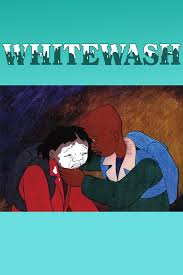Ntozake Shange
Listen to the Recess! Clip
| Author | John Cech (read by Fiona Barnes) |
| Air Date | 3/19/2003 |

Ntozake Shange Transcript
Brief sound clip
You’re hearing a little from the recent film version of Ntozake Shange’s (En-toe-sake Shange’s) book, Whitewash. It’s about an African American school girl named Helene-Angel who has to wait for her older brother, Mauricio, after school to walk her home. That’s them arguing about him being his usual late self. But the normalcy of their day changes when they are stopped by a white street gang. The gang beats up Mauricio, who tries to protect Helene-Angel, and then the leader of the pack smears her face with white paint, to teach her their kind of lesson. This story about racial violence and the possibilities for healing in its aftermath isn’t your typical kind of children’s book. But this touching and courageously told work, by one of our leading writers, is one facet of Ms. Shange’s powerful and versatile voice, a voice that she has used in recent years to create books for young people that are drawn from African American experience and to write drama, fiction, and poetry for adults that is passionate, arresting, unforgettable: “A poem,” she maintains, “shd fill you up with something/ make you swoon, change yr mind or make it up/a poem shd happen to you like cold water or a kiss.”
Ms. Shange does nothing half-heartedly: the kinds of danger she describes in contemporary children’s lives are drawn directly from her own, growing up in the 1960s in St. Louis, as she describes it, “in the midst of a struggle for the soul of the country and I’m not talking about Sputnik.” Ms. Shange continues: “There was nothing but struggle surrounding us as colored children in America from 1954 on. . . . Race defined my reality. . . . The emblems of my childhood: Emmet Till, bus rides in Montgomery, bombs in Birmingham, and the fires in Watts.” It is a chilling catalog of memories, and yet memory is also the mother of the muses: it is the place the poetry comes from. But as Ms. Shange also reminds us, poetry is a place where hopes can begin.